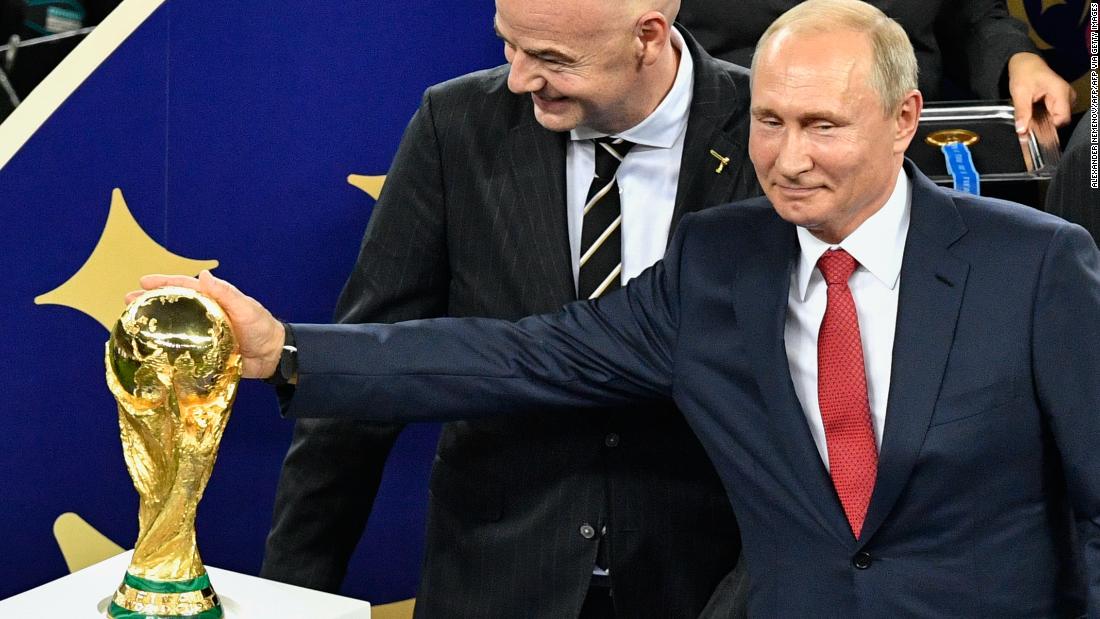
(CNN)No expense was spared. A $50 billion statement of intent that in hosting the 2014 Sochi Winter Olympics, Russia was back as a major player on the sporting stage. Four years later, Russia staged another landmark spectacle in the 2018 FIFA World Cup. Billions of eyeballs on Russia during a month-long jamboree of soccer. Such events were not only an opportunity for thousands of fans to visit and celebrate all that’s good with the country but a chance for President Vladimir Putin to meet and greet world leaders on a global stage, the epitome of what academics call “soft power.” But over the next few years, Putin might not be basking in any grand moments of national joy and pride after the World Anti-Doping Agency (WADA) banned Russia from major sporting competitions for four years because of doping non-compliance. If upheld, the ruling would prevent the country from competing at the 2020 Olympics in Tokyo and the 2022 World Cup in Qatar, though the door has been left open for clean Russian athletes to compete as neutrals without country affiliation as they did at the 2018 Winter Olympics in PyeongChang. Read More The potential ban also means Russia might not…